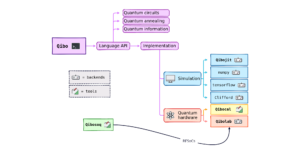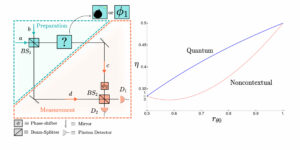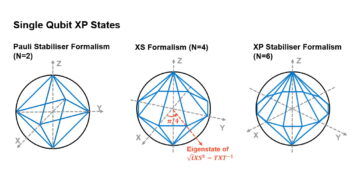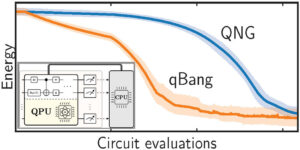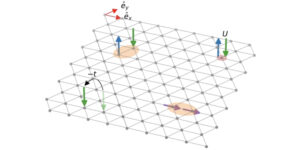International Centre for Theory of Quantum Technologies, University of Gdansk, 80-308 Gdansk, Poland
Find this paper interesting or want to discuss? Scite or leave a comment on SciRate.
Abstract
The notion of macrorealism was introduced by Leggett and Garg in an attempt to capture our intuitive conception of the macroscopic world, which seems difficult to reconcile with our knowledge of quantum physics. By now, numerous experimental witnesses have been proposed as methods of falsifying macrorealism. In this work, I critically review and analyze both the definition of macrorealism and the various proposed tests thereof, identifying a number of problems with these (and revisiting key criticisms raised by other authors). I then show that all these problems can be resolved by reformulating macrorealism within the framework of generalized probabilistic theories. In particular, I argue that a theory should be considered to be macrorealist if and only if it describes every macroscopic system by a strictly classical (i.e., simplicial) generalized probabilistic theory. This approach brings significant clarity and precision to our understanding of macrorealism, and provides us with a host of new tools – both conceptual and technical – for studying macrorealism. I leverage this approach i) to clarify in what sense macrorealism is a notion of classicality, ii) to propose a new test of macrorealism that is maximally informative and theory-independent (unlike all prior tests of macrorealism), and iii) to show that every proof of generalized contextuality on a macroscopic system implies the failure of macrorealism.
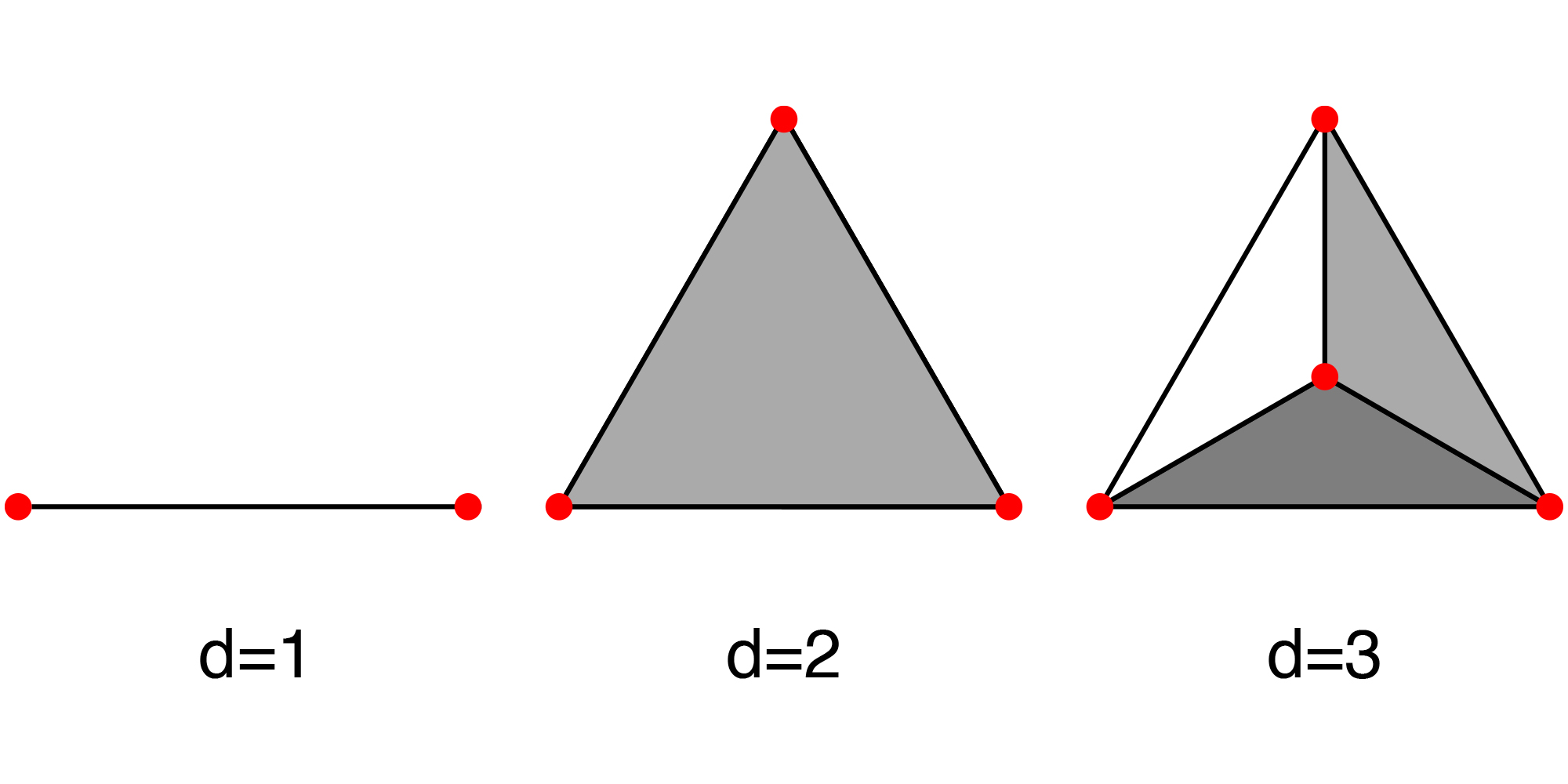
Featured image: Macrorealism is best characterized as the operational hypothesis that macroscopic systems are described by strictly classical generalized probabilistic theories—those whose state space is a simplex of some dimension d and whose effect space is the logical dual of that simplex.
[embedded content]
► BibTeX data
► References
[1] A. J. Leggett and Anupam Garg. “Quantum mechanics versus macroscopic realism: Is the flux there when nobody looks?”. Phys. Rev. Lett. 54, 857–860 (1985).
https://doi.org/10.1103/PhysRevLett.54.857
[2] Owen JE Maroney and Christopher G Timpson. “Quantum-vs. macro-realism: What does the leggett-garg inequality actually test?” (2014). url: https://arxiv.org/abs/1412.6139.
arXiv:1412.6139
[3] L. Hardy. “Quantum Theory From Five Reasonable Axioms” (2001). arXiv:quant-ph/0101012.
arXiv:quant-ph/0101012
[4] Jonathan Barrett. “Information processing in generalized probabilistic theories”. Phys. Rev. A 75, 032304 (2007).
https://doi.org/10.1103/PhysRevA.75.032304
[5] Giulio Chiribella, Giacomo Mauro D’Ariano, and Paolo Perinotti. “Probabilistic theories with purification”. Phys. Rev. A 81, 062348 (2010).
https://doi.org/10.1103/PhysRevA.81.062348
[6] John H Selby, David Schmid, Elie Wolfe, Ana Belén Sainz, Ravi Kunjwal, and Robert W Spekkens. “Accessible fragments of generalized probabilistic theories, cone equivalence, and applications to witnessing nonclassicality” (2021).
https://doi.org/10.1103/PhysRevA.107.062203
[7] L. Hardy, D. Home, E. J. Squires, and M. A. B. Whitaker. “Realism and the quantum-mechanical two-state oscillator”. Phys. Rev. A 45, 4267–4270 (1992).
https://doi.org/10.1103/PhysRevA.45.4267
[8] Sara Foster and Andrew Elby. “A squid no-go theorem without macrorealism: What squid’s really tell us about nature”. Foundations of physics 21, 773–785 (1991). url: https://doi.org/10.1007/BF00733344.
https://doi.org/10.1007/BF00733344
[9] Fabio Benatti, Giancarlo Ghirardi, and Renata Grassi. “On some recent proposals for testing macrorealism versus quantum mechanics”. Foundations of Physics Letters 7, 105–126 (1994).
https://doi.org/10.1007/BF02415504
[10] Rob Clifton. “Noninvasive measurability, negative-result measurements and watched-pots: Another look at Leggett’s arguments for the incompatibility between macro-realism and quantum mechanics”. Symposium on the foundations of modern physics. World Scientific. (1990). url: https://doi.org/10.1142/1213.
https://doi.org/10.1142/1213
[11] Guido Bacciagaluppi. “Leggett-garg inequalities, pilot waves and contextuality” (2014).
[12] Michael D. Mazurek, Matthew F. Pusey, Kevin J. Resch, and Robert W. Spekkens. “Experimentally bounding deviations from quantum theory in the landscape of generalized probabilistic theories”. PRX Quantum 2, 020302 (2021).
https://doi.org/10.1103/PRXQuantum.2.020302
[13] Michael J. Grabowecky, Christopher A. J. Pollack, Andrew R. Cameron, Robert W. Spekkens, and Kevin J. Resch. “Experimentally bounding deviations from quantum theory for a photonic three-level system using theory-agnostic tomography”. Phys. Rev. A 105, 032204 (2022).
https://doi.org/10.1103/PhysRevA.105.032204
[14] Johannes Kofler and Caslav Brukner. “Condition for macroscopic realism beyond the leggett-garg inequalities”. Phys. Rev. A 87, 052115 (2013).
https://doi.org/10.1103/PhysRevA.87.052115
[15] George C Knee, Kosuke Kakuyanagi, Mao-Chuang Yeh, Yuichiro Matsuzaki, Hiraku Toida, Hiroshi Yamaguchi, Shiro Saito, Anthony J Leggett, and William J Munro. “A strict experimental test of macroscopic realism in a superconducting flux qubit”. Nature communications 7, 1–5 (2016). url: https://doi.org/10.1038/ncomms13253.
https://doi.org/10.1038/ncomms13253
[16] Mark M Wilde and Ari Mizel. “Addressing the clumsiness loophole in a leggett-garg test of macrorealism”. Foundations of Physics 42, 256–265 (2012). url: https://doi.org/10.1007/s10701-011-9598-4.
https://doi.org/10.1007/s10701-011-9598-4
[17] John-Mark A Allen, Owen JE Maroney, and Stefano Gogioso. “A stronger theorem against macro-realism”. Quantum 1, 13 (2017). url: https://doi.org/10.22331/q-2017-07-14-13.
https://doi.org/10.22331/q-2017-07-14-13
[18] R. W. Spekkens. “Contextuality for preparations, transformations, and unsharp measurements”. Phys. Rev. A 71, 052108 (2005).
https://doi.org/10.1103/PhysRevA.71.052108
[19] Anthony J Leggett. “Testing the limits of quantum mechanics: motivation, state of play, prospects”. Journal of Physics: Condensed Matter 14, R415 (2002).
https://doi.org/10.1088/0953-8984/14/15/201
[20] Florian Fröwis, Pavel Sekatski, Wolfgang Dür, Nicolas Gisin, and Nicolas Sangouard. “Macroscopic quantum states: Measures, fragility, and implementations”. Rev. Mod. Phys. 90, 025004 (2018).
https://doi.org/10.1103/RevModPhys.90.025004
[21] David Schmid, John H. Selby, and Robert W. Spekkens. “Unscrambling the omelette of causation and inference: The framework of causal-inferential theories” (2020). arXiv:2009.03297.
arXiv:2009.03297
[22] Nicholas Harrigan and Robert W. Spekkens. “Einstein, Incompleteness, and the Epistemic View of quantum states”. Found. Phys. 40, 125–157 (2010).
https://doi.org/10.1007/s10701-009-9347-0
[23] Anthony J Leggett. “Experimental approaches to the quantum measurement paradox”. Foundations of Physics 18, 939–952 (1988). url: https://doi.org/10.1007/BF01855943.
https://doi.org/10.1007/BF01855943
[24] Stephen D Bartlett, Terry Rudolph, and Robert W Spekkens. “Reference frames, superselection rules, and quantum information”. Reviews of Modern Physics 79, 555 (2007).
https://doi.org/10.1103/RevModPhys.79.555
[25] David Schmid, John H Selby, Matthew F Pusey, and Robert W Spekkens. “A structure theorem for generalized-noncontextual ontological models” (2020). url: https://arxiv.org/abs/2005.07161.
arXiv:2005.07161
[26] Lorenzo Catani, Matthew Leifer, David Schmid, and Robert W Spekkens. “Why interference phenomena do not capture the essence of quantum theory” (2021).
https://doi.org/10.22331/q-2023-09-25-1119
[27] Avshalom C Elitzur and Lev Vaidman. “Quantum mechanical interaction-free measurements”. Foundations of Physics 23, 987–997 (1993). url: https://doi.org/10.1007/BF00736012.
https://doi.org/10.1007/BF00736012
[28] Carlton M Caves, Christopher A Fuchs, and Rüdiger Schack. “Quantum probabilities as bayesian probabilities”. Physical review A 65, 022305 (2002).
https://doi.org/10.1103/PhysRevA.65.022305
[29] Robert W. Spekkens. “Evidence for the epistemic view of quantum states: A toy theory”. Phys. Rev. A 75, 032110 (2007).
https://doi.org/10.1103/PhysRevA.75.032110
[30] B. Hensen et al. “Loophole-free Bell inequality violation using electron spins separated by 1.3 kilometres”. Nature 526, 682 EP – (2015).
https://doi.org/10.1038/nature15759
[31] Lynden K. Shalm, Evan Meyer-Scott, Bradley G. Christensen, Peter Bierhorst, Michael A. Wayne, Martin J. Stevens, Thomas Gerrits, Scott Glancy, Deny R. Hamel, Michael S. Allman, Kevin J. Coakley, Shellee D. Dyer, Carson Hodge, Adriana E. Lita, Varun B. Verma, Camilla Lambrocco, Edward Tortorici, Alan L. Migdall, Yanbao Zhang, Daniel R. Kumor, William H. Farr, Francesco Marsili, Matthew D. Shaw, Jeffrey A. Stern, Carlos Abellán, Waldimar Amaya, Valerio Pruneri, Thomas Jennewein, Morgan W. Mitchell, Paul G. Kwiat, Joshua C. Bienfang, Richard P. Mirin, Emanuel Knill, and Sae Woo Nam. “Strong loophole-free test of local realism”. Phys. Rev. Lett. 115, 250402 (2015).
https://doi.org/10.1103/PhysRevLett.115.250402
[32] Marissa Giustina, Marijn A. M. Versteegh, Sören Wengerowsky, Johannes Handsteiner, Armin Hochrainer, Kevin Phelan, Fabian Steinlechner, Johannes Kofler, Jan-Åke Larsson, Carlos Abellán, Waldimar Amaya, Valerio Pruneri, Morgan W. Mitchell, Jörn Beyer, Thomas Gerrits, Adriana E. Lita, Lynden K. Shalm, Sae Woo Nam, Thomas Scheidl, Rupert Ursin, Bernhard Wittmann, and Anton Zeilinger. “Significant-loophole-free test of bell’s theorem with entangled photons”. Phys. Rev. Lett. 115, 250401 (2015).
https://doi.org/10.1103/PhysRevLett.115.250401
[33] Michael D. Mazurek, Matthew F. Pusey, Ravi Kunjwal, Kevin J. Resch, and Robert W. Spekkens. “An experimental test of noncontextuality without unphysical idealizations”. Nat. Comm. 7 (2016). url: https://doi.org/10.1038/ncomms11780.
https://doi.org/10.1038/ncomms11780
[34] Ravi Kunjwal and Robert W. Spekkens. “From the Kochen-Specker Theorem to Noncontextuality Inequalities without Assuming Determinism”. Phys. Rev. Lett. 115, 110403 (2015).
https://doi.org/10.1103/PhysRevLett.115.110403
[35] David Schmid, John H. Selby, Elie Wolfe, Ravi Kunjwal, and Robert W. Spekkens. “Characterization of noncontextuality in the framework of generalized probabilistic theories”. PRX Quantum 2, 010331 (2021).
https://doi.org/10.1103/PRXQuantum.2.010331
[36] Lucien Hardy and William K Wootters. “Limited holism and real-vector-space quantum theory”. Foundations of Physics 42, 454–473 (2012).
https://doi.org/10.1007/s10701-011-9616-6
[37] Michael A Nielsen and Isaac Chuang. “Quantum computation and quantum information”. Cambridge University Press. (2010). url: http://mmrc.amss.cas.cn/tlb/201702/W020170224608149940643.pdf.
http://mmrc.amss.cas.cn/tlb/201702/W020170224608149940643.pdf
[38] David Schmid, Katja Ried, and Robert W. Spekkens. “Why initial system-environment correlations do not imply the failure of complete positivity: A causal perspective”. Phys. Rev. A 100, 022112 (2019).
https://doi.org/10.1103/PhysRevA.100.022112
[39] Lucien Hardy. “Reformulating and reconstructing quantum theory” (2011). url: https://arxiv.org/abs/1104.2066.
arXiv:1104.2066
[40] Berthold-Georg Englert. “Fringe visibility and which-way information: An inequality”. Phys. Rev. Lett. 77, 2154–2157 (1996).
https://doi.org/10.1103/PhysRevLett.77.2154
[41] Andrew JP Garner, Oscar CO Dahlsten, Yoshifumi Nakata, Mio Murao, and Vlatko Vedral. “A framework for phase and interference in generalized probabilistic theories”. New Journal of Physics 15, 093044 (2013).
https://doi.org/10.1088/1367-2630/15/9/093044
[42] David Schmid, John H Selby, and Robert W Spekkens. “Addressing some common objections to generalized noncontextuality” (2023). url: https://arxiv.org/abs/2302.07282.
arXiv:2302.07282
[43] Matthew F. Pusey, Lídia del Rio, and Bettina Meyer. “Contextuality without access to a tomographically complete set” (2019). url: https://arxiv.org/abs/1904.08699.
arXiv:1904.08699
[44] Robert W. Spekkens. “Quasi-Quantization: Classical Statistical Theories with an Epistemic Restriction”. Pages 83–135. Springer Netherlands. Dordrecht (2016).
https://doi.org/10.1007/978-94-017-7303-4_4
[45] Stephen D Bartlett, Terry Rudolph, and Robert W Spekkens. “Reconstruction of gaussian quantum mechanics from liouville mechanics with an epistemic restriction”. Phys. Rev. A 86, 012103 (2012).
https://doi.org/10.1103/PhysRevA.86.012103
[46] Robert W. Spekkens. “The ontological identity of empirical indiscernibles: Leibniz’s methodological principle and its significance in the work of Einstein” (2019). url: https://arxiv.org/abs/1909.04628.
arXiv:1909.04628
[47] Robert W. Spekkens. “Negativity and Contextuality are Equivalent Notions of Nonclassicality”. Phys. Rev. Lett. 101, 020401 (2008).
https://doi.org/10.1103/PhysRevLett.101.020401
[48] Cristhiano Duarte Barbara Amaral Marcelo Terra Cunha Roberto D. Baldijao, Rafael Wagner. “Noncontextuality as a meaning of classicality in quantum darwinism” (2021). arXiv:2104.05734.
https://doi.org/10.1103/PRXQuantum.2.030351
arXiv:2104.05734
[49] Iman Marvian. “Inaccessible information in probabilistic models of quantum systems, non-contextuality inequalities and noise thresholds for contextuality” (2020). url: https://arxiv.org/abs/2003.05984.
arXiv:2003.05984
[50] John H Selby, Elie Wolfe, David Schmid, and Ana Belén Sainz. “An open-source linear program for testing nonclassicality” (2022). url: https://arxiv.org/abs/2204.11905.
arXiv:2204.11905
[51] J. S. Bell. “On the Einstein Podolsky Rosen paradox”. Physics 1, 195–200 (1964).
https://doi.org/10.1103/PhysicsPhysiqueFizika.1.195
[52] Matthew F. Pusey. “Anomalous Weak Values Are Proofs of Contextuality”. Phys. Rev. Lett. 113, 200401 (2014).
https://doi.org/10.1103/PhysRevLett.113.200401
[53] Robert W. Spekkens, D. H. Buzacott, A. J. Keehn, Ben Toner, and G. J. Pryde. “Preparation Contextuality Powers Parity-Oblivious Multiplexing”. Phys. Rev. Lett. 102, 010401 (2009).
https://doi.org/10.1103/PhysRevLett.102.010401
[54] Andre Chailloux, Iordanis Kerenidis, Srijita Kundu, and Jamie Sikora. “Optimal bounds for parity-oblivious random access codes”. New J. Phys. 18, 045003 (2016).
https://doi.org/10.1088/1367-2630/18/4/045003
[55] Andris Ambainis, Manik Banik, Anubhav Chaturvedi, Dmitry Kravchenko, and Ashutosh Rai. “Parity Oblivious $d$-Level Random Access Codes and Class of Noncontextuality Inequalities” (2016). url: http://arxiv.org/abs/1607.05490.
arXiv:1607.05490
[56] Debashis Saha, Paweł Horodecki, and Marcin Pawłowski. “State independent contextuality advances one-way communication”. New J. Phys. 21, 093057 (2019).
https://doi.org/10.1088/1367-2630/ab4149
[57] Robert Raussendorf. “Contextuality in measurement-based quantum computation”. Phys. Rev. A 88, 022322 (2013).
https://doi.org/10.1103/PhysRevA.88.022322
[58] Matty J Hoban, Earl T Campbell, Klearchos Loukopoulos, and Dan E Browne. “Non-adaptive measurement-based quantum computation and multi-party Bell inequalities”. New J. Phys. 13, 023014 (2011).
https://doi.org/10.1088/1367-2630/13/2/023014
[59] David Schmid, Haoxing Du, John H Selby, and Matthew F Pusey. “The stabilizer subtheory has a unique noncontextual model” (2021).
https://doi.org/10.1103/PhysRevLett.129.120403
[60] David Schmid and Robert W Spekkens. “Contextual advantage for state discrimination”. Phys. Rev. X 8, 011015 (2018).
https://doi.org/10.1103/PhysRevX.8.011015
[61] Matteo Lostaglio and Gabriel Senno. “Contextual advantage for state-dependent cloning” (2019).
https://doi.org/10.22331/q-2020-04-27-258
[62] Matteo Lostaglio. “Certifying quantum signatures in thermodynamics and metrology via contextuality of quantum linear response”. Phys. Rev. Lett. 125, 230603 (2020).
https://doi.org/10.1103/PhysRevLett.125.230603
[63] Farid Shahandeh. “Contextuality of general probabilistic theories and the power of a single resource” (2019). arXiv:1911.11059.
https://doi.org/10.1103/PRXQuantum.2.010330
arXiv:1911.11059
[64] J. Barrett et al. “Nonlocal correlations as an information-theoretic resource”. Phys. Rev. A 71, 022101 (2005).
https://doi.org/10.1103/PhysRevA.71.022101
[65] Gilad Gour and Robert W Spekkens. “The resource theory of quantum reference frames: manipulations and monotones”. New J. Phys. 10, 033023 (2008).
https://doi.org/10.1088/1367-2630/10/3/033023
[66] Victor Veitch, SA Hamed Mousavian, Daniel Gottesman, and Joseph Emerson. “The resource theory of stabilizer quantum computation”. New J. Phys. 16, 013009 (2014).
https://doi.org/10.1088/1367-2630/16/1/013009
[67] Bob Coecke, Tobias Fritz, and Robert W Spekkens. “A mathematical theory of resources”. Info. Comp. 250, 59–86 (2016).
https://doi.org/10.1016/j.ic.2016.02.008
[68] Denis Rosset, Francesco Buscemi, and Yeong-Cherng Liang. “Resource theory of quantum memories and their faithful verification with minimal assumptions”. Phys. Rev. X 8, 021033 (2018).
https://doi.org/10.1103/PhysRevX.8.021033
[69] Iman Marvian and Robert W Spekkens. “The theory of manipulations of pure state asymmetry: I. basic tools, equivalence classes and single copy transformations”. New Journal of Physics 15, 033001 (2013).
https://doi.org/10.1088/1367-2630/15/3/033001
[70] David Schmid, Thomas C. Fraser, Ravi Kunjwal, Ana Belen Sainz, Elie Wolfe, and Robert W. Spekkens. “Understanding the interplay of entanglement and nonlocality: motivating and developing a new branch of entanglement theory”. Quantum 7, 1194 (2023).
https://doi.org/10.22331/q-2023-12-04-1194
[71] David Schmid, Denis Rosset, and Francesco Buscemi. “The type-independent resource theory of local operations and shared randomness”. Quantum 4, 262 (2020).
https://doi.org/10.22331/q-2020-04-30-262
Cited by
[1] Vinicius P. Rossi, David Schmid, John H. Selby, and Ana Belén Sainz, “Contextuality with vanishing coherence and maximal robustness to dephasing”, Physical Review A 108 3, 032213 (2023).
[2] Giuseppe Vitagliano and Costantino Budroni, “Leggett-Garg macrorealism and temporal correlations”, Physical Review A 107 4, 040101 (2023).
[3] David Schmid, John H. Selby, and Robert W. Spekkens, “Addressing some common objections to generalized noncontextuality”, arXiv:2302.07282, (2023).
[4] Lorenzo Catani, Matthew Leifer, Giovanni Scala, David Schmid, and Robert W. Spekkens, “Aspects of the phenomenology of interference that are genuinely nonclassical”, Physical Review A 108 2, 022207 (2023).
The above citations are from SAO/NASA ADS (last updated successfully 2024-01-03 15:51:26). The list may be incomplete as not all publishers provide suitable and complete citation data.
Could not fetch Crossref cited-by data during last attempt 2024-01-03 15:51:22: Could not fetch cited-by data for 10.22331/q-2024-01-03-1217 from Crossref. This is normal if the DOI was registered recently.
This Paper is published in Quantum under the Creative Commons Attribution 4.0 International (CC BY 4.0) license. Copyright remains with the original copyright holders such as the authors or their institutions.
- SEO Powered Content & PR Distribution. Get Amplified Today.
- PlatoData.Network Vertical Generative Ai. Empower Yourself. Access Here.
- PlatoAiStream. Web3 Intelligence. Knowledge Amplified. Access Here.
- PlatoESG. Carbon, CleanTech, Energy, Environment, Solar, Waste Management. Access Here.
- PlatoHealth. Biotech and Clinical Trials Intelligence. Access Here.
- Source: https://quantum-journal.org/papers/q-2024-01-03-1217/
- :has
- :is
- :not
- ][p
- 1
- 1.3
- 10
- 100
- 11
- 12
- 125
- 13
- 14
- 15%
- 16
- 17
- 19
- 195
- 1985
- 1994
- 1996
- 20
- 2000
- 2001
- 2005
- 2008
- 2011
- 2012
- 2013
- 2014
- 2015
- 2016
- 2017
- 2018
- 2019
- 2020
- 2021
- 2022
- 2023
- 22
- 23
- 24
- 25
- 250
- 26%
- 27
- 28
- 29
- 30
- 31
- 32
- 33
- 35%
- 36
- 360
- 39
- 40
- 41
- 43
- 49
- 50
- 51
- 54
- 58
- 60
- 66
- 67
- 7
- 70
- 75
- 77
- 8
- 87
- 9
- a
- About
- above
- ABSTRACT
- access
- actually
- addressing
- advances
- ADvantage
- affiliations
- against
- AL
- Alan
- All
- allen
- an
- Ana
- analyze
- and
- andre
- Andrew
- Another
- Anthony
- applications
- approach
- approaches
- ARE
- argue
- arguments
- AS
- aspects
- assumptions
- At
- attempt
- author
- authors
- basic
- Bayesian
- BE
- been
- Bell
- ben
- BEST
- between
- Beyond
- bob
- both
- bounds
- Branch
- Break
- Brings
- by
- cambridge
- cameron
- CAN
- capture
- carlos
- centre
- characterized
- Christensen
- Christopher
- clarity
- class
- classes
- CO
- codes
- comm
- comment
- Common
- Commons
- Communication
- Communications
- COMP
- complete
- computation
- conception
- conceptual
- Condensed matter
- considered
- content
- copyright
- correlations
- could
- criticisms
- Daniel
- data
- David
- definition
- del
- described
- describes
- developing
- difficult
- Dimension
- discuss
- do
- does
- during
- dyer
- e
- E&T
- Edward
- effect
- einstein
- embedded
- entanglement
- equivalence
- Equivalent
- essence
- evan
- Every
- experimental
- Failure
- faithful
- five
- FLUX
- For
- Foster
- found
- Foundations
- fragility
- Framework
- from
- garg
- garner
- General
- genuinely
- George
- harvard
- Have
- Hodge
- holders
- Home
- host
- http
- HTTPS
- i
- identifying
- Identity
- if
- ii
- iii
- image
- Iman
- implementations
- in
- independent
- inequalities
- inequality
- info
- information
- informative
- initial
- institutions
- interesting
- Interference
- International
- introduced
- intuitive
- IT
- ITS
- Jamie
- Jan
- JavaScript
- jeffrey
- John
- jonathan
- joshua
- journal
- jp
- jpg
- Key
- knowledge
- landscape
- Last
- Leave
- Leverage
- License
- limits
- List
- local
- logical
- Look
- LOOKS
- loophole
- manipulations
- mark
- Martin
- mathematical
- Matter
- matthew
- max-width
- May..
- meaning
- measurement
- measurements
- measures
- mechanical
- mechanics
- Memories
- methods
- Metrology
- Meyer
- Michael
- minimal
- model
- models
- Modern
- Month
- Morgan
- motivating
- Motivation
- multi-party
- Nam
- Nature
- Netherlands
- New
- nicholas
- Nicolas
- Noise
- normal
- Notion
- now
- number
- numerous
- of
- on
- only
- open
- open source
- operational
- Operations
- or
- original
- Other
- our
- pages
- Paolo
- Paper
- Paradox
- particular
- Paul
- perspective
- Peter
- phase
- Photons
- physical
- Physics
- pilot
- plato
- Plato Data Intelligence
- PlatoData
- Play
- Positivity
- power
- powers
- Precision
- press
- principle
- Prior
- problems
- processing
- Program
- proof
- proofs
- Proposals
- propose
- proposed
- prospects
- provide
- provides
- published
- publisher
- publishers
- Quantum
- quantum information
- quantum measurement
- Quantum Mechanics
- quantum physics
- quantum systems
- Qubit
- R
- Rafael
- raised
- random
- randomness
- realism
- really
- reasonable
- recent
- recently
- reference
- references
- registered
- remains
- resolved
- resolving
- resource
- Resources
- response
- restriction
- review
- Reviews
- Richard
- rob
- ROBERT
- robustness
- rules
- s
- SA
- scientific
- scott
- seems
- sense
- set
- shared
- should
- show
- Signatures
- significance
- significant
- single
- some
- Space
- spins
- State
- States
- statistical
- Stephen
- Strict
- stronger
- structure
- Studying
- Successfully
- such
- suitable
- superconducting
- Symposium
- system
- Systems
- Technical
- Technologies
- tell
- Terra
- test
- Testing
- tests
- that
- The
- The Landscape
- their
- then
- theory
- There.
- These
- this
- Title
- to
- tools
- transformations
- under
- understanding
- unique
- university
- unlike
- updated
- URL
- us
- using
- Values
- various
- varun
- Verification
- Versus
- via
- View
- VIOLATION
- visibility
- volume
- W
- want
- was
- waves
- wayne
- weak
- What
- when
- which
- whose
- william
- with
- within
- without
- witnessing
- Woo
- Work
- world
- X
- year
- youtube
- zephyrnet




